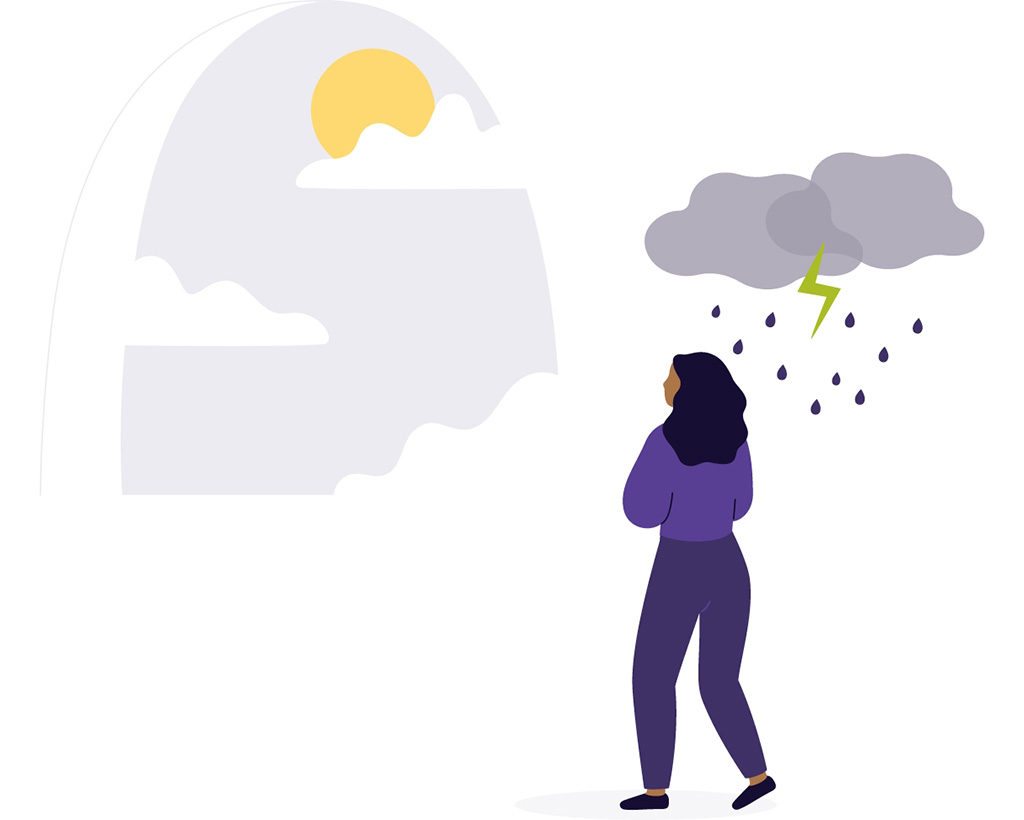Therapy & Rehabilitation
Therapy and rehabilitation are important parts of an effective treatment plan.
How do therapy and rehabilitation work?
Therapy and rehabilitation programs can play an important part in increasing the quality of life for people living with schizophrenia and psychosis. There are various programs that people can access once the symptoms of psychosis have been managed through medications. It is helpful to speak to a psychiatrist or mental health worker to understand the available options and to select the best option for each person.

-
Available therapy & rehabilitation options
-
People living with mental health challenges can experience frequent negative thoughts and emotions. Cognitive behavioural therapy is intended to teach people various techniques to help modify beliefs and behaviours to better cope with challenging situations.
-
The delusions experienced by people with schizophrenia are based on cognitive biases. Metacognitive training (MCT) can help people question their thoughts and develop insight by building skills to evaluate and understand the origins of a particular thought or idea.
The idea is that if a person can accept that not all beliefs are true and learn to gather more information before deciding whether something is true, then they may find it easier to overcome delusions that are impacting their lives.
-
Though schizophrenia and related disorders are often characterized by hallucinations and delusions, many people with these disorders also experience cognitive impairments or losses. These impairments include problems with verbal memory, executive functioning, and slowed processing speed, and can vary across individuals.
Cognitive Remediation was developed to treat cognitive losses through repetitive exercises and positive reinforcement. It focuses on the domains of ‘basic’ cognition, which typically includes attention and different components of memory, domains of executive functioning, and processing speed.
While the severity of cognitive difficulties a person experiences does not correlate with the severity of their hallucinations or delusions, the severity of cognitive difficulties is a strong predictor of one’s ability to work, socialize, and live independently. Improving cognitive performance can thus help improve daily life functioning.
Cognitive Remediation begins with a cognitive assessment by a qualified professional (e.g. a psychologist) to clarify what aspects of cognition are impaired and guide the interventions. Cognitive Remediation is meant to complement the effects of medical treatments and/or psychotherapy, not replace them, and it is most successful when done by a trained, active therapist and integrated with daily functional goals.
In 2017, the BC Schizophrenia Society, the BC Psychosis Program, BC Psychosocial Rehabilitation Advanced Practice, and BC Early Psychosis Intervention Program (EPI) held a day-long conference on Cognitive Remediation. The conference can be viewed here:
View the rest of the conference playlist here.
-
Schizophrenia can be a challenging disorder to live with but there are strategies that can help people better manage their illness, such as education, treatment plans, self-monitoring, etc. This can reduce relapses, increase functioning, and improve relationships.
-
Schizophrenia can significantly reduce a person’s ability to work and participate in various activities. Rehabilitation programs (such as supported education, volunteer, and employment programs) can help increase people’s skills, confidence, and independence.
-
MENTAL HEALTH PROFESSIONALS NEAR YOU
Find your local assessment centre.
If you are not in immediate crisis but think you may be experiencing symptoms of schizophrenia or psychosis, find a mental health professional near you to get assessed. Call 8-1-1 to find a mental health assessment centre in your community or find a local EPI centre near you.

What if my loved one refuses treatment?
The BC Mental Health Act outlines the use of involuntary treatment. This is a last resort to protect individuals in crisis, ensuring timely intervention for their well-being when they may be unable to make decisions in their best interest.
-
Frequently asked questions
-
A common symptom of schizophrenia-spectrum disorders is anosognosia (pronounced ahh-no-sog-noh-zee-uh). This symptom defines the common concern many family members and loved ones of people with mental illness have – “they don’t recognize that they are ill.”
Anosognosia is often misinterpreted as stubbornness, denial, or refusal of treatment. This symptom can be frustrating for the families and friends trying to support their loved one and the individual with the mental illness. Would you go to the doctor if you didn’t think you were sick?
-
When someone is experiencing psychosis symptoms, it is important to intervene early to help reduce the length of time they are in psychosis. This can result in better overall outcomes in their recovery process. For more information, visit the Early Psychosis Intervention website.
-
If symptoms are occurring, ask your doctor for an assessment or referral. Family members are usually the first to notice and help their loved one seek medical help. See Supporting a Loved One for more information.
-
See our Supporting a Loved One page for more information and contacts for getting your loved one assessed and provided with medical help. You may also find these pages helpful:
-